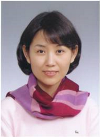
Youngmi Jung
Pusan National University, Korea
Title: TSG-6 induces liver regeneration by enhancing autophagy in mice with chronic liver damage
Biography
Biography: Youngmi Jung
Abstract
Tumor necrosis factor-inducible gene 6 protein (TSG-6), one of cytokines secreted from mesenchymal stem/stromal cells, is known to act as an anti-inflammatory factor. Recently, we prove that TSG-6 contributes to the liver regeneration by suppressing the activation of hepatic stellate cells in CCl4-treated mice; however, the mechanism underlying the effect is poorly understood. Autophagy is the catabolic process targeting cell constituents to the lysosomes for degradation and known to be dysregulated in several diseases, including liver diseases. Emerging evidence suggests that the autopagic functions protect hepatocytes from damages. Hence, we hypothesize that TSG-6 promotes the autophagical clearance systems in hepatocytes and protects liver from injury. To prove this hypothesis, mice were fed with Methionine Choline-Deficient Ethionine (MCDE) for 4 weeks, followed by being injected with TSG-6 (TSG-6 group) or saline (MCDE+vehicle group) with MCDE supplemented diets for additional 2 weeks. The histomorphological injuries and increased level of liver enzymes were shown in MCDE-treated mice with or without saline, whereas those observations were markedly ameliorated in TSG-6 group. The markers for autophagosome formation, LC3-II, Lamp2, and Rab7 and autophagy-relate genes, atg3 and atg7, were elevated in TSG-6 group compared to MCDE or MCDE+vehicle group. Immunostaining for LC3, Lamp2 and Rab7 showed that livers of TSG-6 group contained more hepatocytic cells expressing those markers than other groups. Also, Ki67-positive hepatocytic cells were accumulated in TSG-6 group, whereas these cells were rarely detected in MCDE group. Therefore, these results demonstrated that TSG-6 promoted the autophagical function in hepatocytes, contributing to the liver regeneration.
